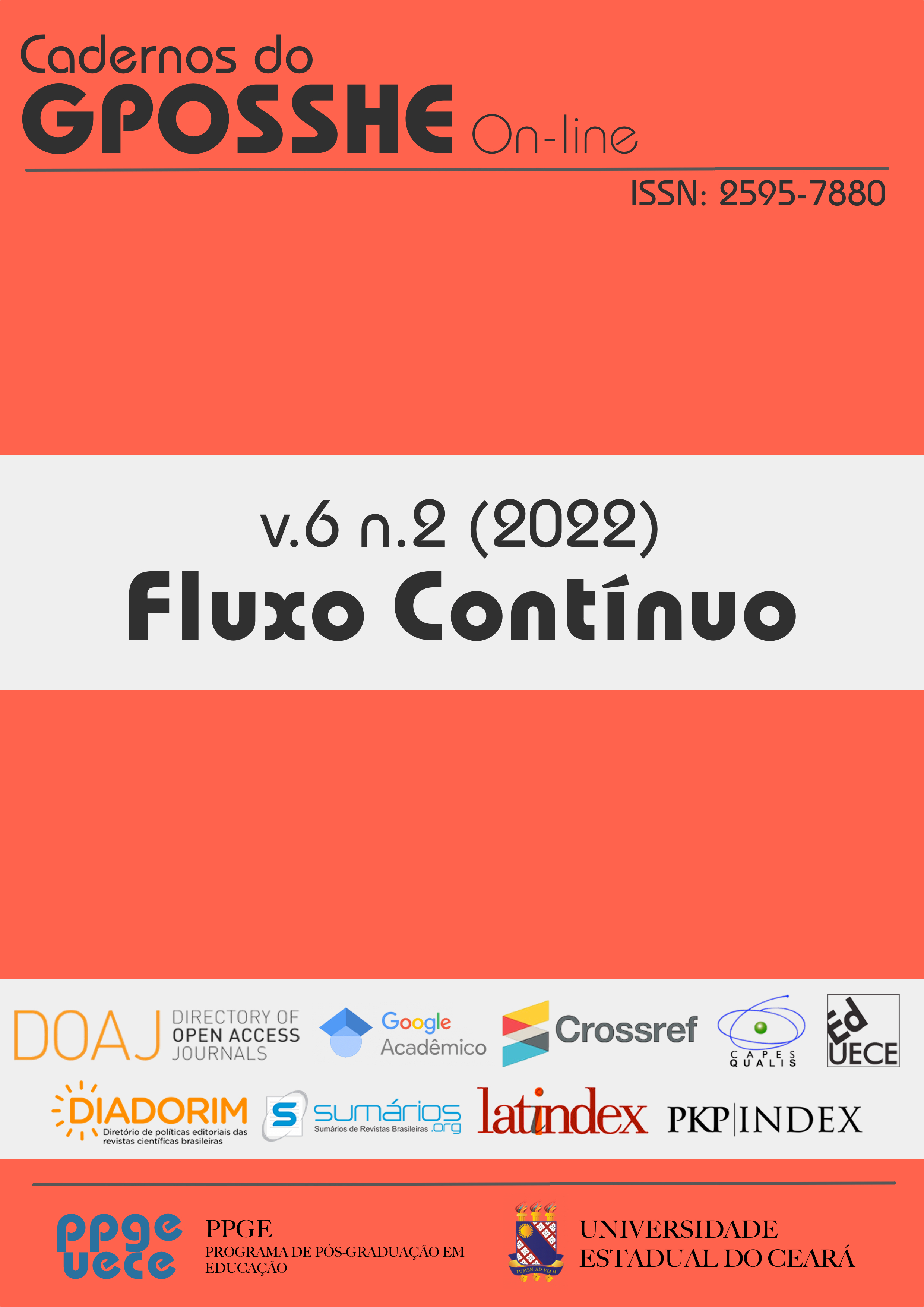Early childhood education, ethnic-racial relations and teaching natural sciences
DOI:
https://doi.org/10.33241/cadernosdogposshe.v6i2.9203Keywords:
Child education; Multiculturalism; Natural Sciences; ethnicities.Abstract
From birth, children interact with the tools that the world has and with other people, making it evident that we all act, think, and feel in different ways. These differences refer to multiculturalism, which, present in daily coexistence, reach educational institutions and specifically in early childhood education, in which it must be explored in order to ensure that they are learning instruments, seeking to train people capable of respecting the others and themselves. The field of natural sciences can contribute by exploring the histories and characteristics of different peoples, emphasizing these differences in a positive way, showing their contributions to scientific advancement. These facts are treated in this work through the analysis of official documents and complemented by ideas from renowned authors in the area.
Metrics
References
BARBOSA, A. C. A. Sociedade democrática: entre a identidade e a diversidade. Londrina: S.A, 2014.
BRASIL. Base Nacional Comum Curricular. Brasília, BF: MEC, 2019
BRASIL. Diretrizes curriculares nacionais para a educação infantil /Secretaria de Educação Básica. – Brasília, DF: MEC, SEB, 2010.
BRASIL. Indicadores da qualidade na Educação Infantil. Brasília, DF: MEC, 2009.
CANDAU, V. M. F. Multiculturalismo e educação: desafios para a prática pedagógica. In: MOREIRA, Antonio Flávio & CANDAU, Vera Maria Ferrão (org.). Multiculturalismo: diferenças culturais e práticas pedagógicas. 2. ed. Petrópolis: Vozes, 2008.
FORQUIN, J. C. O currículo: entre o relativismo e o universalismo. Educação e Sociedade, v.21, nº 73, 2000. Disponível em: https://www.scielo.br/j/es/a/njxtpj9s6CdQHVd4wyyRKYS/?lang=pt&format=pdf. Acesso em: 16/05/2022.
MOREIRA, A. F. B. Currículo: Políticas e Práticas. Campinas: Papirus, 2001.
MOREIRA, A. F. & CANDAU, V. M. F. Educação escolar e cultura(s): construindo caminhos. Revista Brasileira de Educação, n.23, p.156 – 168, mai.-ago, 2003. Disponível em: https://www.scielo.br/j/rbedu/a/99YrW4ny4PzcYnSpVPvQMYk/?lang=pt&format=pdf. Acesso em 11/05/2022.
Programa das Nações Unidas para o Desenvolvimento. Relatório do desenvolvimento humano 2004: liberdade cultural num mundo diversificado. Lisboa: Mensagem, 2004.
STOER, S.; CORTESÃO, L. “Levantando a pedra”: da pedagogia inter/multicultural às políticas educativas numa época de transnacionalização. Porto: Afrontamento, 1999.
TORRES, V. R. Multiculturalismo na educação infantil: motivo de oportunidade ou obstáculo na formação das crianças? Revista Científica Multidisciplinar Núcleo do Conhecimento. Ano. 07, Ed. 01, V. 01, p. 18-29. Jan 2022. Disponível em: https://www.nucleodoconhecimento.com.br/educacao/multiculturalismo-na-educacao. Acesso em 03/10/2022.
VERRANGIA, D.; SILVA, P. B. G. Cidadania, relações étnico-raciais e educação: desafios e potencialidades do ensino de Ciências. Revista Educação e Pesquisa, São Paulo, v.36, n.3, p. 705-718, set/dez 2010.
Downloads
Published
How to Cite
Issue
Section
License
Copyright (c) 2022 GPOSSHE notebooks

This work is licensed under a Creative Commons Attribution-NonCommercial-NoDerivatives 4.0 International License.
Os autores possuem direitos autorais, sem restrição, aos seus textos. Os Cadernos do GPOSSHE On-line permitem ao autor os direitos de publicação. Os conceitos emitidos em artigos assinados são de absoluta e exclusiva responsabilidade de seus autores.
Todo o conteúdo da Revista Cadernos Gposshe On-Line é aberto para acesso público, propiciando maior visibilidade, alcance e disseminação dos trabalhos publicados.
























